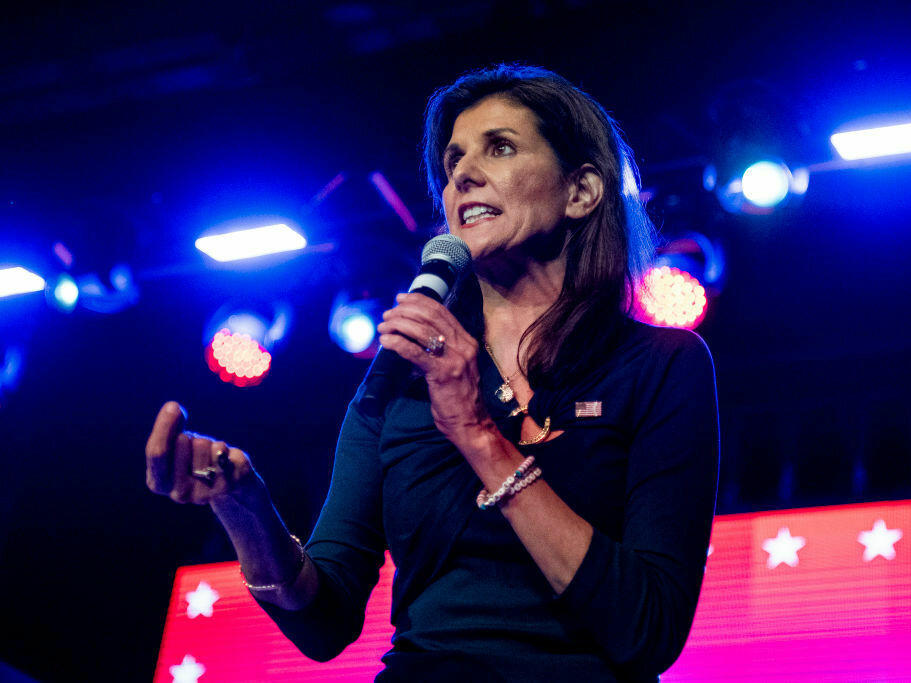Section Branding
Header Content
Nikki Haley says she'll vote for Trump
Primary Content
Former South Carolina Gov. Nikki Haley, who ended her bid for the Republican presidential run against former President Donald Trump, said at an event in Washington, D.C., that she "will be voting for Trump."
Haley's remarks, her first on the matter since she dropped out of the race in March, came at an event at the Hudson Institute, a conservative think tank.
Haley, who served as an ambassador to the United Nations under Trump, held off for months on endorsing her former boss, even after dropping her own bid for the Republican nomination.
"Trump has not been perfect on these policies," Haley said, describing several foreign policy and economic issues. "I've made that clear many, many times. But Biden has been a catastrophe. So I will be voting for Trump."
During her campaign, Haley described Trump as "unhinged" and full of "chaos." When she suspended her campaign in March, Haley said it was "now up to Donald Trump" to earn the support of the voters who'd backed her.
She reiterated that in her remarks at the Hudson Institute on Wednesday afternoon.
"Trump would be smart to reach out to the millions of people who voted for me and continue to support me, and not assume that they're just gonna be with him," she said. "And I genuinely hope he does that."
President Biden's campaign has made an explicit bid for Haley voters, releasing an ad targeting them and saying, "There is a place for you in my campaign."
In a Biden campaign spokesman noted that "millions of Republican voters...continue to cast their ballots against Donald Trump in the primaries" and suggested those voters should back Biden.
Even after exiting the Republican primary, Haley has won significant support in several states where her name remained on the ballot, getting roughly 1 in 5 Republican votes in states including Indiana, Nebraska and Maryland.

